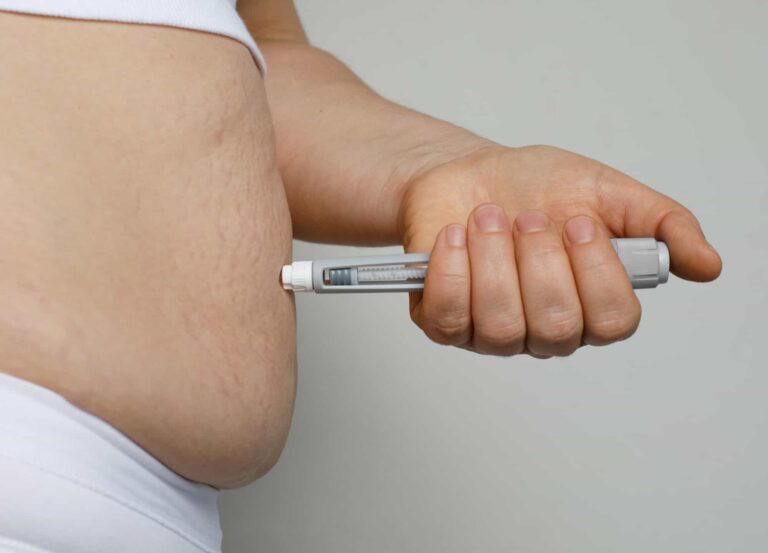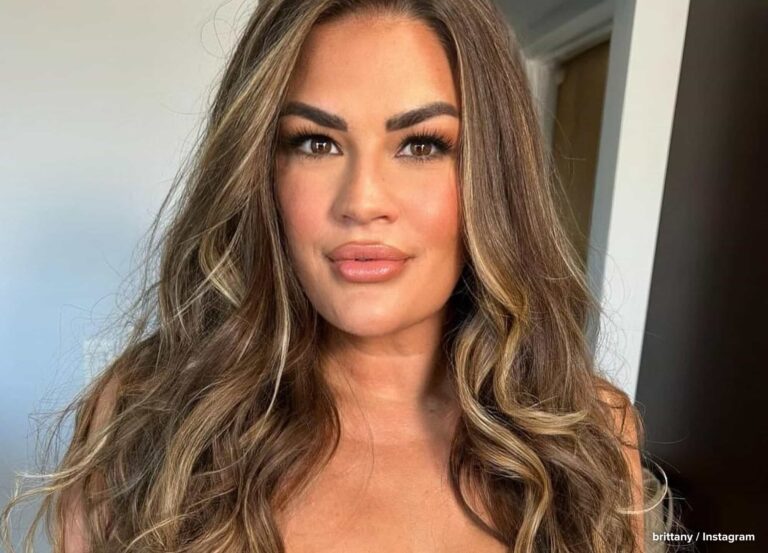While all plastic surgery procedures can be transformative for a patient, a breast reduction is often one of the most life changing. “There are no words to describe the confidence I have gained following the breast reduction,” says one RealSelf reviewer. “The impact it has had on me physically, emotionally, and mentally is astronomical.” With comments like that, there’s no surprise that the surgery has a 97% Worth It Rating; a study reports that this procedure offers high patient satisfaction. But there’s still that small faction of patients that isn’t happy with the results—and in fact, some end up regretting having done the procedure at all. Breast reduction regret, albeit rare, is a very real thing.
We observed that the majority of patients who declared breast reduction surgery “Not Worth It” experienced some significant complications—in particular, tissue necrosis of the nipple. This study of 338 breast reduction patients showed that only one patient experienced this complication. You already know by now how important it is to choose your provider carefully, as your choice of surgeon can make or break the outcome of your procedure. “The best way to prevent breast reduction regret is to go to a plastic surgeon who is board certified, who does a high volume of these procedures, and with whom the patient feels comfortable,” says Dr. Evan Garfein, a board-certified plastic surgeon and chief of plastic and reconstructive surgery at Montefiore Einstein Advanced Care in New York City.
That said, there remains a segment of patients that regrets breast reduction despite a safe outcome. To help prevent dissatisfaction with your own surgery, read on—with the help of three plastic surgeons, we break down a few aspects of this specialized procedure that can cause breast reduction regret.
Breast reduction regret #1: scarring
There are a few different incision techniques used when performing a breast reduction, with the most common three being periareolar (around the nipple); lollipop (around the nipple, with another incision traveling down vertically from it); and an anchor incision, which is like the lollipop technique but with an added horizontal incision. According to Dr. Garfein, the incision used typically depends on how much skin needs to be removed. “The incision pattern is often discussed in detail prior to the procedure so it is not a shock,” explains Dr. Catherine Chang, a board-certified plastic surgeon in Beverly Hills, California.
How the scars turn out largely depends on patients’ genetics. If you are prone to keloids, you likely already know this, and you’re at greater risk for significant scarring post-procedure; it really comes down to the luck of the draw. “I’ve had patients whose scars, after one year, appear thin, light colored and barely perceptible,” says Dr. Michele Koo, a board-certified plastic surgeon in St. Louis. “I’ve also had patients form thick ropey, dark scars that itch lasting well into one to two years after surgery.” Scars can also widen, especially with weight gain.
Breast reduction regret #2: size
While it can be jarring to suddenly have smaller breasts—and some patients may regret breast reduction surgery because they went too small, it’s more common to regret not going even smaller. That said, shock surrounding the size of one’s new breasts post-procedure can be mitigated during the consultation. “It is common and good practice to bring in photographs of your ‘perfect-world breasts’ for your plastic surgeon, to prevent any misunderstanding,” says Dr. Koo. “This also forces my patients to choose a size and mentally prepare for their future body proportions after the surgery.” Dr. Chang notes that some surgeons may also offer 3D imaging, to give patients an even better understanding of what their new look would be.
The aspects that are most important to keep in mind when choosing your post-procedure size are how dramatic the change would be and the proportions of the rest of your body. “Radical changes in breast size—from very large to very small—or a mismatch in the size of the breast relative to the size of the patient are more disruptive to a patient’s self-image than a more subtle change,” warns Dr. Garfein. “Whenever possible, it’s preferable to design a reduction that leaves the breasts in harmony with the rest of the patient’s body.” Closely working with your provider on a plan for your new size and shape can go a long way toward reducing breast reduction regret.
Breast reduction regret #3: regrowth
It’s rare but possible: breast tissue can grow back after a breast reduction. This often happens because of weight gain—if you’re someone who tends to gain weight in their breasts, you could be at a greater risk for regrowth. Other causes include pregnancy (which causes hormonal changes that can trigger the breasts to grow in size) and getting breast reduction surgery too early in life, before your breasts have finished growing. “This is one reason to defer having a breast reduction until one’s weight is stable or until one is done having children,” says Dr. Garfein, though he knows this is not preferable for all patients.
If the breasts were to regrow, a revision might be necessary, to reduce the breast and improve its shape, says Dr. Chang. While it’s understandable that needing to go through the same procedure twice could cause breast reduction regret, that’s not to say it isn’t worth it. “Though breasts can grow back to near their original size, this does not negate the procedure,” insists Dr. Koo. “I’ve had a handful of patients return for a second breast reduction after children and breastfeeding. They didn’t regret it the first time and certainly didn’t regret it the second time.”
Breast reduction regret #4: no improvement to back pain
Even rarer than breast regrowth is no improvement to back pain. “I have never—and doctors rarely ever say never—had a patient state that they didn’t gain relief of upper back pain, shoulder grooving and neck pain,” says Dr. Koo. This comes with a caveat: patients with almost instantaneous relief have had their breasts lifted above the inframammary fold and have removed at least 500 grams (around one pound) of tissue from each breast. Simply having lighter breasts will not guarantee a reduction in discomfort, says Dr. Garfein: “There are many reasons to have back pain—large breasts are certainly not the only reason.”
However, if you have another condition that’s causing your back pain, such as an issue with a disc in your neck or a shoulder impingement, you may not feel relief. You may also need support. “It can take time for the muscles to adjust and strengthen,” says Dr. Chang. “For some, physical therapy might still be necessary after breast reduction surgery, to help improve posture and strengthen certain muscles.” Strength training may be easier after surgery too. “It’s relief of the weight on your shoulders and neck that may have prevented you from ever going for a jog or exercising,” says Dr. Koo, who finds that this procedure typically inspires her patients to live a healthier and more active lifestyle.
Breast reduction regret #5: no change to self-esteem
For many, the transformation to one’s mental health is the most significant benefit of undergoing a breast reduction. “The psychological uplift of being able to wear a swimsuit, exercise comfortably—[even something] as simple as easily buying a bra is nothing short of miraculous,” says Dr. Koo. “The relief from sweaty rashes under the breasts on the abdomen is mind-boggling; the freedom of removing 2 to 10 pounds of breast tissue off your shoulders is beyond description for almost 100% of my patients.” There’s also the freedom from leering eyes, the value of which can’t be overstated to many with large breasts. Studies show that in the majority of cases, breast reduction surgery can alleviate depression and anxiety as well as improve quality of life and self-esteem.
However, for those who have preexisting body images that are not resolved with this surgery, undergoing breast reduction can lead to regret. “Preexisting body-image issues are critically important to elucidate, not only for breast surgery but for all aesthetic and reconstructive surgery,” says Dr. Garfein. “It is one of the most important jobs of the plastic surgeon to explore preexisting body image issues, as they not only will not be improved after surgery but can be unintentionally exacerbated by it.” Your provider should spend a good amount of time with you to get not only an understanding of what you want from your surgery’s outcome but also the driving reason for pursuing it in the first place. “If I sense that the reason cannot be solved with the surgery, I will make a point to discuss that with the patient so that they understand that surgery will not solve those issues,” says Dr. Chang.
What should I do if I regret my breast reduction?
If you have yet to undergo this surgery and are wary of potential regret, let us reiterate that the majority of patients who get breast reduction surgery are very happy with their outcomes. In fact, the providers we interviewed for this piece have almost never encountered a patient who regretted their breast reduction; do not let rare cases dissuade you from doing your own research and finding a reputable provider with whom you can speak about your fears. “Have an honest and open conversation with your plastic surgeon, to understand the limitations of the procedure,” says Dr. Chang. “Therapy and coaching can be very helpful for patients who have concerns about expectations for the procedure.” Knowing the limitations of a breast reduction plus giving your provider visual reference points for your desired outcome can also help you avoid breast reduction regret.
Those who have undergone and regret breast reduction surgery typically feel remorseful around the 6- to 12-week mark, after seeing the scar or breast size as the swelling resolves, says Dr. Koo. If you’re regretting your choice, speak to your provider right away—but also be gentle with yourself. You’ll still be healing from your procedure, and it’s somewhat normal to question the decision to get plastic surgery during recovery, especially when you’re uncomfortable. “Breast surgery typically takes six months to a year to fully heal,” says Dr. Chang. “Often, patients who feel regretful initially end up being satisfied with their results once their body has had a chance to heal.”
Should you fully recover and determine that you do, in fact, regret your breast reduction, you have options. “When any patient has regret after any cosmetic or reconstructive surgery, the most important thing for the surgeon to do is to be available to listen to the patient, to reassure when appropriate, and to offer revision when appropriate,” says Dr. Garfein. If you decide you want to enlarge your breasts with an augmentation surgery, your breasts’ weight, size, and shape should be stable for at least one year before booking a new procedure.
Breast augmentation after a breast reduction is not particularly common, but it’s not unheard of. Dr. Koo usually sees this behavior from patients who have lost significant weight, either through lifestyle changes or bariatric surgery; Dr. Garfein occasionally sees it from patients who feel they were overreduced or regret overall their choice to get breast reduction. “In these patients, fat grafting is a possibility—although typically, placement of an implant yields better cosmetic results,” he says. “Having had a prior reduction should not affect the likelihood of a successful outcome following the second operation.”











